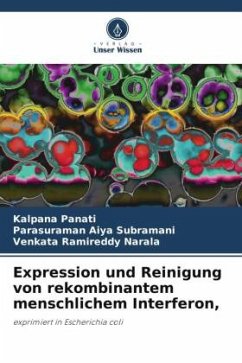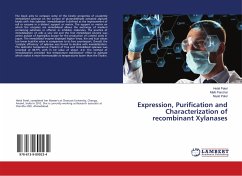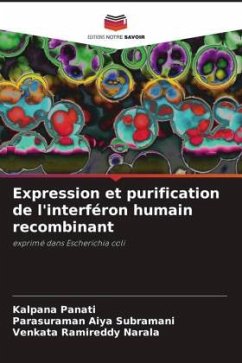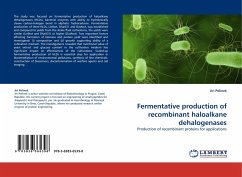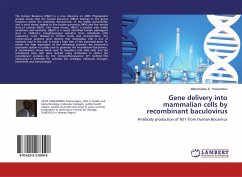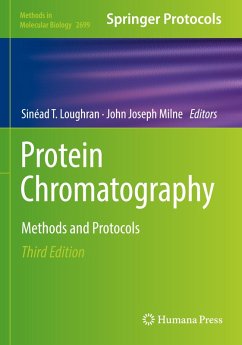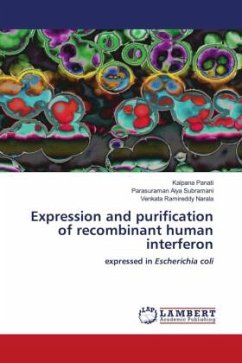
Expression and purification of recombinant human interferon
expressed in Escherichia coli
Versandkostenfrei!
Versandfertig in 6-10 Tagen
25,99 €
inkl. MwSt.

PAYBACK Punkte
13 °P sammeln!
Interferons, a family of cytokines, are released by cells in response to infection and inflammation. Human interferons play a critical role in the immune system and have been licensed as antiviral and anticancer medicines. Human recombinant proteins have been created for several decades using a variety of host systems, including prokaryotes, yeast, and mammalian cells. Three distinct types of human interferon (IFN) genes have been cloned and produced in bacterial hosts for large-scale synthesis (IFN , beta, and Gamma). Increased interest in the purification and manufacture of high purity IFNs ...
Interferons, a family of cytokines, are released by cells in response to infection and inflammation. Human interferons play a critical role in the immune system and have been licensed as antiviral and anticancer medicines. Human recombinant proteins have been created for several decades using a variety of host systems, including prokaryotes, yeast, and mammalian cells. Three distinct types of human interferon (IFN) genes have been cloned and produced in bacterial hosts for large-scale synthesis (IFN , beta, and Gamma). Increased interest in the purification and manufacture of high purity IFNs has been fueled by the growing therapeutic applications of human IFNs. This review discusses current advances in the production of recombinant human interferons using the E. coli expression system, as well as comparative purification strategies for increasing yields and biological activity.



